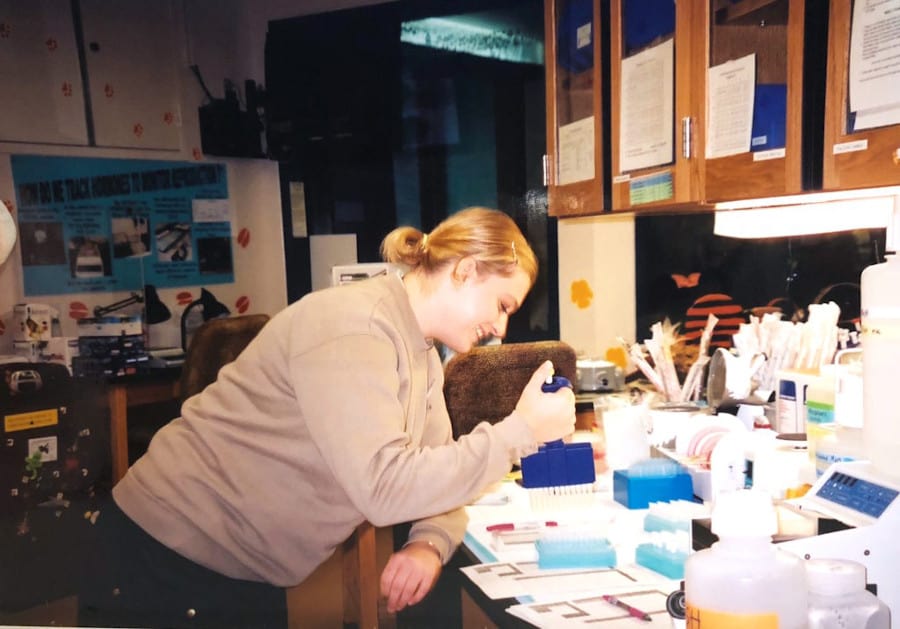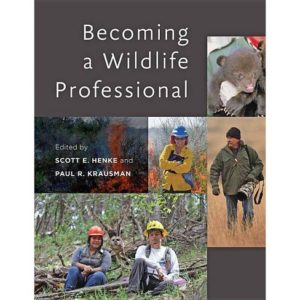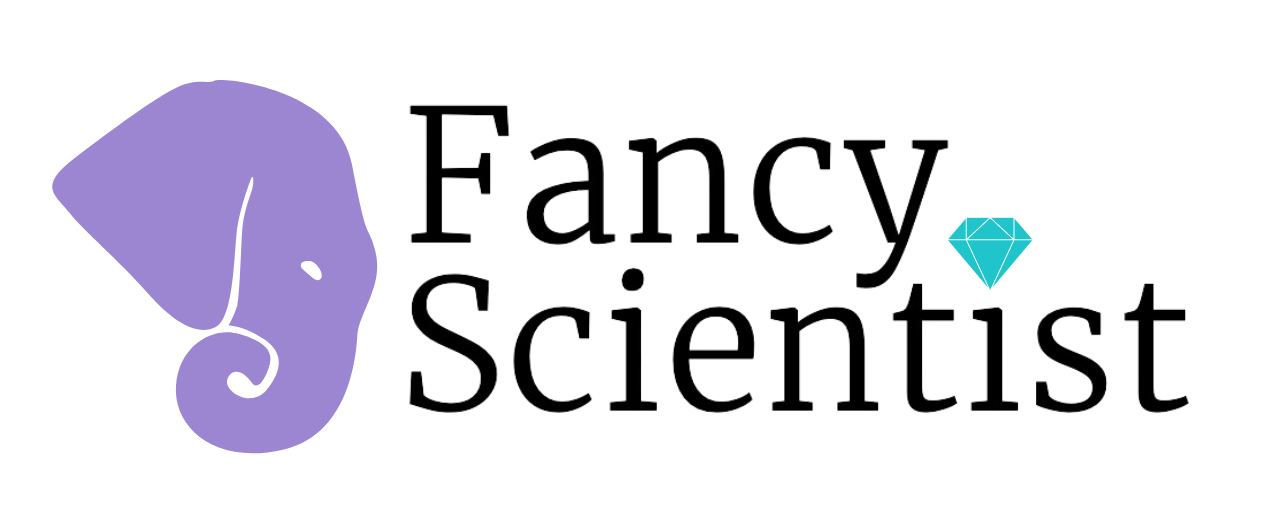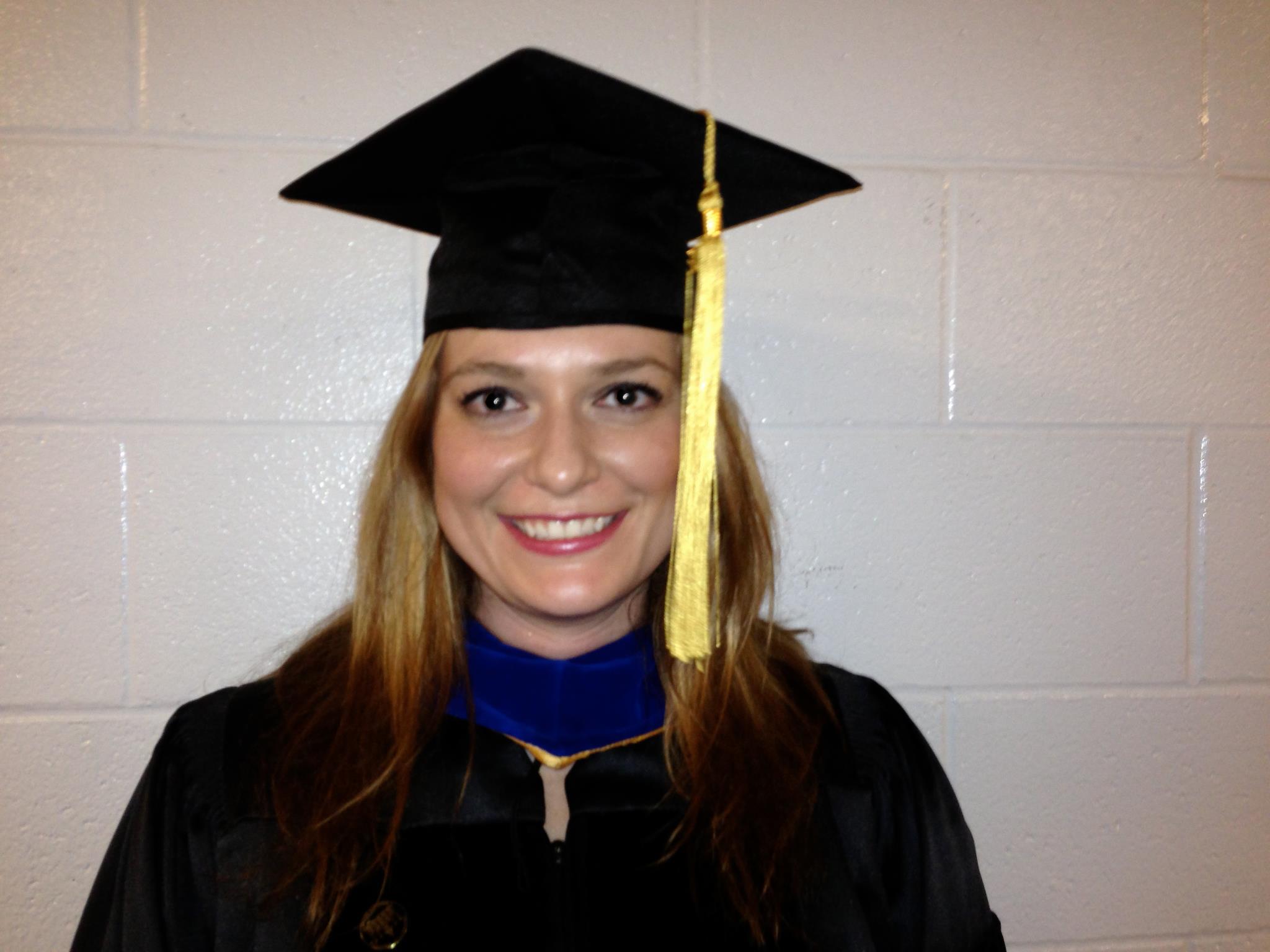*This post contains affiliate links. As an Amazon Associate, I earn from qualifying purchases. If you use one of my links, I get a commission at no additional cost to you! Read my Affiliate Links Disclaimer for more information.
One of the biggest questions you will ask yourself in your career towards wildlife biology is if you should go to graduate school. You will definitely need a bachelor’s degree, and although you don’t need an advanced degree to get a job, it is much harder to get one without one.
Which then leads to the question, “Should I get a master’s or Ph.D.?”
There are two ways to go about wildlife biology graduate programs. You can get a master’s and then get your Ph.D. or you can just jump straight through and get your Ph.D.

Note that not all wildlife biology graduate programs or universities will allow you to do this. For example, at the University of Missouri, where I went to school, in the Biological Sciences department (my department), you didn’t need a Master’s to get a Ph.D., but in the department of Fisheries and Wildlife, you did.
I did the latter option; jumping straight into my Ph.D. I figured that if I didn’t like science or if I wanted to change to a master’s, I always could. This is true, but it was harder in my situation.
For me, I didn’t start my field work and lab work until year three. If I changed to a master’s, it still would have taken me about five years to complete my work. At that point, I might as well have finished my Ph.D., which is what I did.
For the reasons I outline below, I really wish I did my master’s first, but if I did, I might not be writing these blog posts for you and my book for careers in wildlife biology.
Wildlife Biology Graduate Programs: Master’s vs Ph.D.
Briefly, the main difference between having a master’s and a Ph.D. is that jobs with a Ph.D. are those where you are in charge or a lab or research project. In these positions, you will be directing the research and deciding what types of projects to pursue. In master’s level positions, you usually will be working for a more senior scientist who will be directing you on the projects you will be working on.
Master’s Degree First:
Master’s Pros:
- You get the experience of doing a project from start to finish. This is extremely helpful in preparing you for your Ph.D. if you decide to do one. You have complete ownership over the project and have to work out all of the problems and setbacks. As an intern on other people’s research projects, although I was getting experience, I did not have this ownership and get this experience.
- You may want to stop at a Master’s even if you think you want a Ph.D. now. You might realize you don’t like science or that you want jobs at this level. It’s really hard to understand what science is like until you have your own research project! Trust me.
- You will get more publications! If you choose to go on and do your Ph.D., you will have at least one publishable manuscript from your Master’s and more from your Ph.D. Publications make you more competitive for research jobs.
- You will work with more than one advisor if you get your Ph.D. This is helpful for several reasons. First, you will be exposed to both advisor’s networks. Say you are applying for a job. It really helps if someone can vouch for you or knows of your advisor’s work. If you have two advisors, this doubles your chances of having that connection (you would be surprised how small this world is!). Also, if you are interested in becoming a professor, being exposed to two different mentoring styles will definitely help you figure out what works.
- It will give you more skills if you continue on to get your Ph.D. By doing a Master’s and a Ph.D., you will likely get to work with two different taxa and/or study systems and potentially learn different skills. For example, your Master’s could involve genetic techniques, while your Ph.D. might involve tracking animals with GPS transmitters.
- It will help you prepare for your Ph.D. if you decide to get one. From your Master’s, you will learn what you don’t like as much as what you do like. In the example mentioned above, maybe you realized you love research, but you just don’t love genetics. A Ph.D. after a Master’s gives you an opportunity to pivot.
Master’s Cons:
In my opinion, there are few cons of getting a master’s first.
- You have to move twice (unless you do your Ph.D. at the same place as your master’s). This can be costly and is just plain annoying. I hate moving!
- If you are interested in international projects, these tend to be more difficult to do for Master’s projects. This is because it’s just harder to do international projects during shorter time frames (securing funds, permits, etc.). However, if your adviser consistently works internationally, especially if it’s in the same location, they may be able to secure funds for you. You can also always do international for your Ph.D.
Ph.D. Straight Through: Pros and Cons
Ph.D. Pros:
- If you go straight through and get your Ph.D., you can finish faster. (That being said, my Ph.D. took me 6.5 years. If I got a Master’s first, the experience that I learned during my Master’s could have resulted in me taking less time to get my Ph.D. However, there are a lot of factors that determine that. In my case, my field work was delayed and I didn’t even get my dung samples until year three of my Ph.D.)
- You can get better funding opportunities. At my university, a Ph.D. qualified you for a life sciences fellowship, which meant you didn’t have to teach and you got a higher stipend. This was not available to Master’s students.
- You can always change it to a Master’s if you decide you don’t want a Ph.D. In my case however, I didn’t start collecting data until my third year. If I changed my program to a Master’s, it would have taken me roughly the same amount of time and effort to finish and get a Ph.D.
- You will only have to move once. This can save you time and money.
- You get all of your courses done at once.
Ph.D. Cons:
The cons will pretty much all be opposite of the pros in master’s. Briefly, they are:
- You may have fewer publishing opportunities.
- You will only have one advisor and only access to their network.
- Getting a Ph.D. can over-qualify you for jobs. If you apply for MS level jobs as a Ph.D., you will have to work extra hard in your cover letter to convince them that this is the job that you want.
- It can potentially be hard to change to a Masters if you change your mind depending on your research
- You have fewer opportunities to learn new skills.
- You will have fewer opportunities to take cool or useful courses (like stats, which is extremely important in this career). Although some of you may think it might be a pro to take fewer courses and get it all done with.
Over-qualification is is Real
You might be thinking, “I’ll just get my Ph.D. because that will qualify me for everything.” However, in reality it can over-qualify you for jobs. What this means is that if you are applying for a job at the Master’s level and you have a Ph.D., the employer might think that you are just applying for this job to get a job. In other words, using this job as a placeholder until you get the job you really want.
To this day, I apply for some jobs that only require a Master’s because I am genuinely interested in these jobs. You will have to explain in your cover letter why you really want the job to try to convince the employer that this is not the case. In many cases, I think I didn’t get interviewed because I was overqualified.
My Decision and What I Would Have Changed
Before I went to graduate school, I took three years off and secured research internships to see how I would like working in wildlife biology and what type of research I wanted to pursue. In all of these internships, I learned invaluable skills and experience.
At the Bureau of Land Management, I did a lot of fieldwork and learned how to use ArcGIS, navigate in backcountry areas, and gained some experience tracking animals with radio telemetry.
At Disney’s Animal Kingdom, I gained a lot experience in lab work, measuring the hormones of captive and wild animals for conservation and management purposes.
At the School for Field Studies in Kenya, I got my most valuable experience. I coauthored two scientific publications by collaborating with a professor on social science studies.
I learned A LOT from these experiences, but the problem was that I learned what research was like from an intern’s or a technician’s perspective.
As an intern or technician, you don’t have ownership over the project. It’s not your baby; it’s not up to you to design the project or problem solve once you hit roadblocks. Even as a coauthor, the question was already formulated and I had no input in designing the study.
Therefore, I didn’t go through the struggles I would have if it was my project. In other words, I could sleep at night as the main responsibilities were not on my shoulders. In these experiences, I didn’t fully understand what it was like to be a lead researcher.
Although I recommend highly that you volunteer or work in a lab before you get your master’s or Ph.D., I don’t think this experience alone provides you with the necessary information to truly know what it’s like to be a researcher.
This is true even if you are in charge of your “own” project as an undergraduate. It’s not the same as when you are doing your master’s or Ph.D.
My Advice for You on Wildlife Biology Graduate Programs
Once you have an idea of the type of job you want, you can now narrow down the educational requirements you need. If you don’t know exactly, that’s okay, but now with the job tracker, you will have some sort of direction if you use it consistently.
Use my job tracker to figure out exactly what skills and experiences you need to get the job you want before you start researching wildlife biology graduate programs. You may not even need to go to graduate school for the job that you want.
Get my Job Tracker spreadsheet to get started!
If you do decide on getting an advanced degree, you can search wildlife biology graduate programs through this list compiled by the Wildlife Society.
Check out Becoming a Wildlife Professional too. It’s a great resource for careers in wildlife biology, especially for those interested in government positions.

Love this post? Share it with friends!




